To foster a more sustainable, healthy, and equitable society, the University of Macau (UM) is leveraging its academic strengths to address global challenges. Between 2020 and 2024, UM published over 6,000 academic papers related to the United Nations Sustainable Development Goals (SDGs), with significant contributions to SDG7 (Affordable and Clean Energy), SDG3 (Good Health and Wellbeing), and SDG4 (Quality Education), each of which is key to promoting social wellbeing. Notably, about 30% of these publications ranked among the top 10% most cited globally, and 3% were within the top 1%, highlighting the university’s significant international impact.
Innovating Clean Energy Solutions With Advanced Materials
SDG7 (Affordable and Clean Energy) is a cornerstone of sustainable development. Guided by the principle of ‘tackling regional challenges through technological innovation’, UM conducts research on energy-saving solutions, intelligent power distribution networks, and resilient energy systems to address regional challenges such as high temperatures and humidity, heavy loads on power distribution networks, and disruptions caused by typhoons. Meanwhile, through the Institute of Applied Physics and Materials Engineering (IAPME), UM has made remarkable progress in the development of advanced materials. To date, IAPME has conducted over 190 research projects and published more than 2,000 papers in SCI-indexed journals, accumulating over 40,000 citations. These achievements have consistently placed UM in the top 1% globally in the fields of materials science and chemistry in the Essential Science Indicators (ESI) database.
Chair Professor Tang Zikang explains that IAPME’s commitment to cutting-edge scientific innovation and interdisciplinary collaboration has driven the development of advanced materials in emerging fields such as optoelectronic and electro-optical devices. The research team has expanded the functional capabilities of these materials, using multidimensional perovskite materials to develop bi-functional devices that can convert light to electricity and electricity to light. These devices achieve a light-to-electricity conversion efficiency of 26.7%, outperforming the typical 15% to 24% efficiency of commercial polycrystalline silicon solar cells. In addition, their electricity-to-light conversion as LEDs reaches an external quantum efficiency of approximately 32%, placing them among the world leaders in the field.
IAPME also drives innovation in energy storage technologies. The research team led by Assistant Professor Li Qing, for example, specialises in improving the energy density and operational safety of next-generation batteries. Her team focuses on developing key components—such as positive and negative electrode materials, electrolytes, and separators—and innovating redox flow batteries. With a strong focus on practical applications, the team is working to design energy storage materials tailored for different scenarios, with the aim to extend battery lifespans, and enhance the efficient utilisation of renewable energy sources, including solar, tidal, wind, and hydrogen energy.
A National Hub for Chinese Medicine Research and Development
In alignment with SDG3 (Good Health and Wellbeing), UM’s Institute of Chinese Medical Sciences (ICMS) is actively leading efforts to modernise, standardise, and internationalise Chinese medicine. At the heart of this initiative is the State Key Laboratory of Mechanism and Quality of Chinese Medicine (SKL-MQCM), a platform dedicated to cutting-edge research and high-calibre talent development.
This commitment is reflected in UM’s growing academic influence and success in talent development. In the 2023/2024 academic year, UM published more than 300 papers on Chinese medicine in SCI-indexed journals, bringing its total number of publications in the field to over 3,800. A major milestone was marked by publications in top-tier journals such as Science. Furthermore, UM was ranked 33rd globally in the 2024–2025 U.S. News & World Report Best Global Universities Rankings for pharmacology and toxicology, the highest ranking among higher education institutions in Hong Kong and Macao. The university has also risen to the top 0.1% globally in this field in the ESI database, underscoring its world-class status. In addition, established in 2002 with an enrolment of just over 30 students, ICMS has expanded its student body to over 500, and has produced more than 1,000 graduates to date. As Assistant Director Prof Lu Jinjian notes, this growth reflects UM’s dedication to nurturing talent for the Chinese medicine sector across research, academia, and industry.
UM applies advanced scientific methods to analyse the active components of Chinese medicine and uses modern technology to uncover their mechanisms of action. Currently, researchers focus on addressing major health challenges, including autoimmune disorders, cancer, cardiovascular and cerebrovascular diseases, neurological disorders, and metabolic conditions. Notable achievements include the development of anti-tumour drugs targeting TNFR2, treatments for atopic dermatitis, and skin repair therapies derived from natural polysaccharides. Prof Lu and his team are at the forefront of research into the use of Chinese medicine for cancer treatment, aiming to enhance treatment efficacy while reducing complications and alleviating patient suffering by harnessing the active components of Chinese medicine.
In addition to SKL-MQCM, UM has leveraged its strengths in innovation and technology to establish several other research centres. The Macao Centre for Research and Development in Chinese Medicine supports pilot-scale production and registration of selected Chinese medicine formulas in Macao. The Macao Centre for Testing of Chinese Medicine is a government-designated institution responsible for testing and registering Chinese medicine products, conducting supervision and emergency testing, and providing services to the industry such as product testing, technical inspection, and the development of quality standards. The university is also preparing to launch the Centre for Immune Regulation to further advance research in the field. Through this comprehensive research and development ecosystem, UM aims to deliver innovative health solutions worldwide.
Strengthening Mental Illness Prevention Through Academic Research
According to the World Health Organization, depression is the third leading cause of disease burden worldwide. In response, Prof Xiang Yutao, distinguished professor and head of the Department of Public Health and Medicinal Administration in the Faculty of Health Sciences, is leading interdisciplinary research that integrates psychiatry and public health to tackle public mental health challenges.
Prof Xiang explains that his team focuses on tertiary prevention of depression, which involves identifying high-risk populations, conducting early screenings, and developing customised treatment plans in collaboration with the National Clinical Research Centre of Mental Disorders. He emphasises that prevention is better than cure, and their aim is to enhance public health through early discovery and intervention, addressing the root causes of mental health issues in line with SDG3 (Good Health and Wellbeing).
‘Our ultimate goal is to translate research into clinical services, which is why we work closely with hospitals and treatment centres across the country,’ Prof Xiang says. He highlights that one of the team’s papers, Demographic and Clinical Features and Prescribing Patterns of Psychotropic Medications in Patients with the Melancholic Subtype of Major Depressive Disorder in China, has been cited in the Guideline for Prevention and Treatment of Depression in China (2025 Edition), demonstrating their contribution to clinical psychiatry.
In response to global public health challenges, Prof Xiang and his team have also been at the forefront of efforts to support universal health coverage. In early 2020, they were among the first in the world to address the mental health needs of COVID-19 patients, healthcare workers, and the general public. The team published several groundbreaking articles on this topic in prestigious medical journals, including The Lancet and Lancet Psychiatry. Notably, their article Timely Mental Health Care for the 2019-nCoV Outbreak is Urgently Needed was the world’s first academic paper to explore the mental health impact of the COVID-19 pandemic. Cited over 5,000 times, this influential paper not only provided vital guidance during the pandemic, but also served as an important reference for future public health responses. It has helped improve the sustainability of mental health services worldwide.
Reforming Language Education to Enhance Public Literacy
To advance SDG4 (Quality Education), UM has developed a well-rounded approach focused on three key areas. First, in promoting educational equity and talent development, the university offers a variety of scholarship schemes and has launched programmes aligned with Macao’s industry needs. Second, in educational models, UM implements a ‘4‑in‑1’ collaborative education model that promotes whole‑person development and moves beyond traditional teaching methods. Third, in research, UM has focused on educational challenges in China and Macao in recent years, including multilingual education, learning abilities, and learning experiences. By leveraging Macao’s strengths as a multilingual and multicultural city, UM provides valuable theoretical insights and practical solutions to support regional educational development.
Associate Professor Yu Shulin, assistant dean of the Faculty of Education and director of the Centre for Language and Literacy Education, is deeply committed to reforming second language writing education. One of his team’s papers, “It’s very well written!”: Revisiting praise in teacher written feedback from the perspective of feedback literacy, was published in the top-tier international journal Applied Linguistics, making a significant impact on writing pedagogy.
The paper presents a theoretical framework and empirical research on the multifaceted effects of teacher feedback on student writing. It advocates for a shift in focus—from simply correcting grammar and word choice to fostering higher-order writing skills such as discourse structure, logical coherence, tone, and audience awareness. The study underscores how specific, positive, and personalised feedback can boost student motivation and improve second language writing proficiency.
Prof Yu’s team is also exploring innovative pedagogical approaches, including peer evaluation and labour-based contract grading. Peer evaluation engages less proficient learners in collaborative learning activities, while labour-based grading provides clear, structured frameworks for completing writing tasks. Together, these approaches help reduce disparities in language learning outcomes between disadvantaged and advantaged students, creating a more equitable system for assessing educational outcomes.
In addition to academic publications with leading publishers such as Cambridge University Press and Springer, Prof Yu’s work has received international recognition. For example, scholars at The University of Queensland, Australia, have translated his findings into widely used classroom resources. ‘Through collaboration with the Macao Education and Youth Development Bureau, local primary and secondary schools, and higher education institutions in the Chinese mainland, our research has been successfully applied to classroom practices, student assessment frameworks, and teacher training programmes,’ Prof Yu explains. ‘This has advanced second language writing education in a direction that is more humanised, practical, and sustainable.’
UM develops clean energy solutions through cutting-edge materials research and industry partnerships, promotes the development of the ‘big health’ industry with Chinese medicine at its core, and leverages Macao’s unique cultural landscape to strengthen teacher training. Committed to supporting Macao’s role as a hub where Chinese culture serves as the foundation while diverse cultures coexist in harmony, the university stays attuned to real‑world needs, channelling its forward-looking academic and research achievements towards advancing social wellbeing and driving sustainable development.
Text: Stella Kuan
Photos: Editorial board, with some provided by the interviewees
English Translation: Gloria Kuok, Bess Che
Source: UMagazine Issue 32
Related articles:
Leveraging Innovative Technologies to Advance Ecological Sustainability
Fostering Innovation to Drive Economic Diversification and Industry Transformation

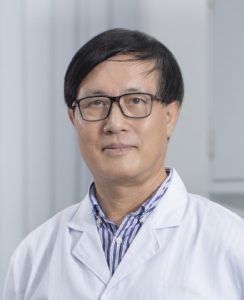
Prof Tang Zikang
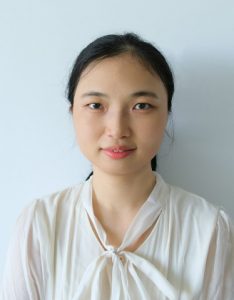
Prof Li Qing
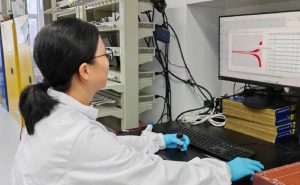
One of UM’s research teams is committed to driving innovation in energy storage technologies
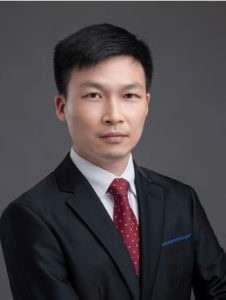
Prof Lu Jinjian
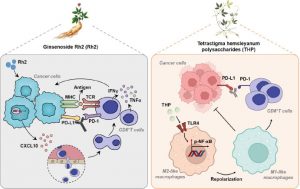
Compounds derived from Chinese medicine can enhance the anti‑cancer effects of immunotherapy
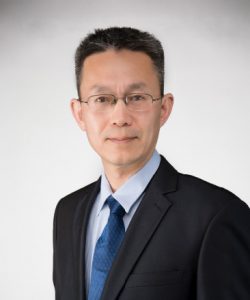
Prof Xiang Yutao
》引用-225x300.jpg)
A paper by a UM research team is cited in the Guideline for Prevention and Treatment of Depression in China (2025 Edition)

Prof Yu Shulin
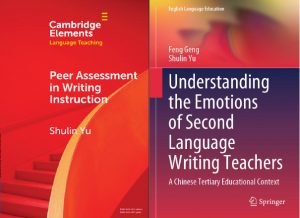
Research findings from UM are featured in books published by leading international academic publishers

